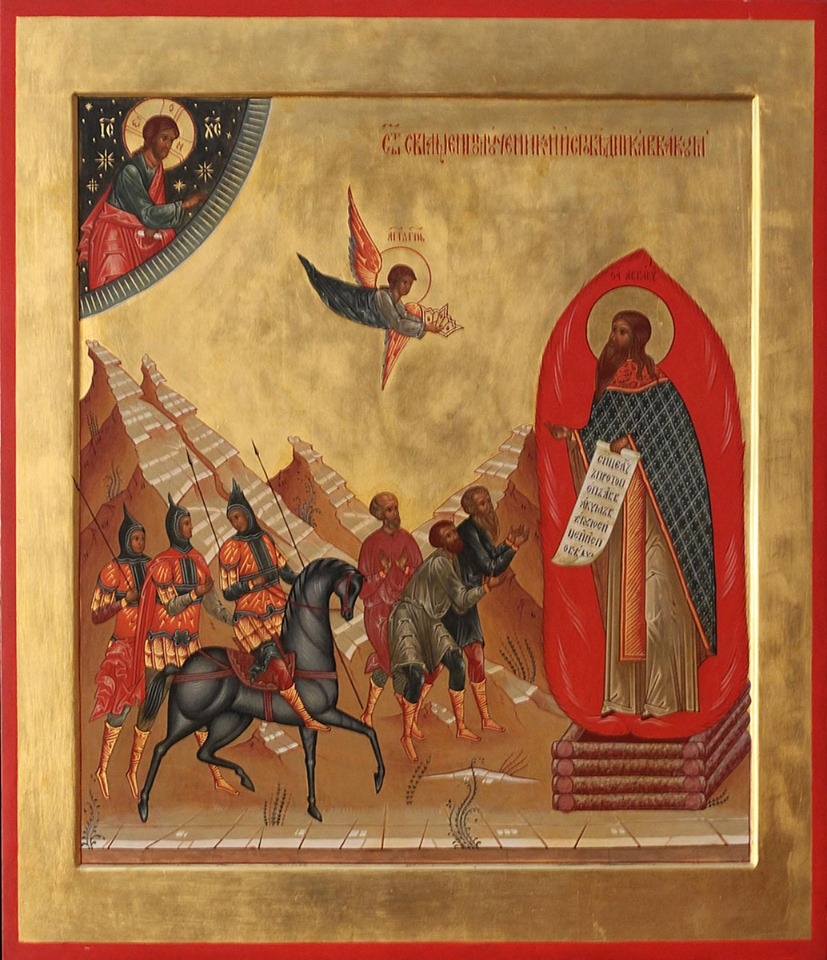The Commemoration of the Pustozersk Martyrs #
On April 27 (new style), the Church commemorates the sufferings and burning of the holy hieromartyr and confessor Avvakum and his fellow strugglers: Priest Lazar, Deacon Theodore, and Monk Epiphanius. These martyrs gave up their souls to God in Pustozersk in the year 1682.
The supporters of Patriarch Nikon did not shrink from the cruelest methods: torture, starvation, and burning at the stake. Avvakum was first chained, then exiled together with his family to Tobolsk, and later sent even farther east, to the wild land of Dauria (in today’s Transbaikal region). After ten years of wandering under incredibly harsh conditions in Siberia, where he lost two young children, Avvakum was summoned back to Moscow and urged to accept “Nikon’s innovations.” But Avvakum remained unyielding. He was exiled again, this time to the North. Before the council of 1666, Avvakum was once more brought to Moscow, to the Borovsk Monastery, and for ten weeks they attempted to persuade him to abandon his struggle — but in vain. “Thus I believe, thus I confess, thus I live, and thus I die!” answered the holy warrior of Christ to his tormentors.

Unlawfully defrocked and anathematized, together with his fellow believers — Priest Lazar, Deacon Theodore, and Monk Epiphanius — he was sent to the distant settlement of Pustozersk, near the shores of the Northern Sea, in the land of permafrost, where he languished for fifteen years in an earthen pit. Deprived of the possibility of preaching by word of mouth, Avvakum wrote and, through faithful people, sent letters, commentaries, and consolations to the children of Christ’s Church throughout Russia. Today, more than ninety works of the saint are known, and nearly all were written during his imprisonment in Pustozersk. It was there, too, that he composed his famous Life.
Answering the call of Protopriest Avvakum, an increasing number of Russians rose up in defense of the Old Faith. Zealous for the new reforms, Patriarch Joachim demanded the execution of the holy confessors. After the death of Tsar Alexei Mikhailovich, his young son Feodor ascended the Russian throne. Protopriest Avvakum sent a petition to the new tsar, calling him to return to the piety of his forefathers. In response came an order: to burn the prisoners of Pustozersk “for the great blasphemies against the royal house.” On April 14, 1682 (old style), on the Friday of Holy Week, the sentence was carried out…